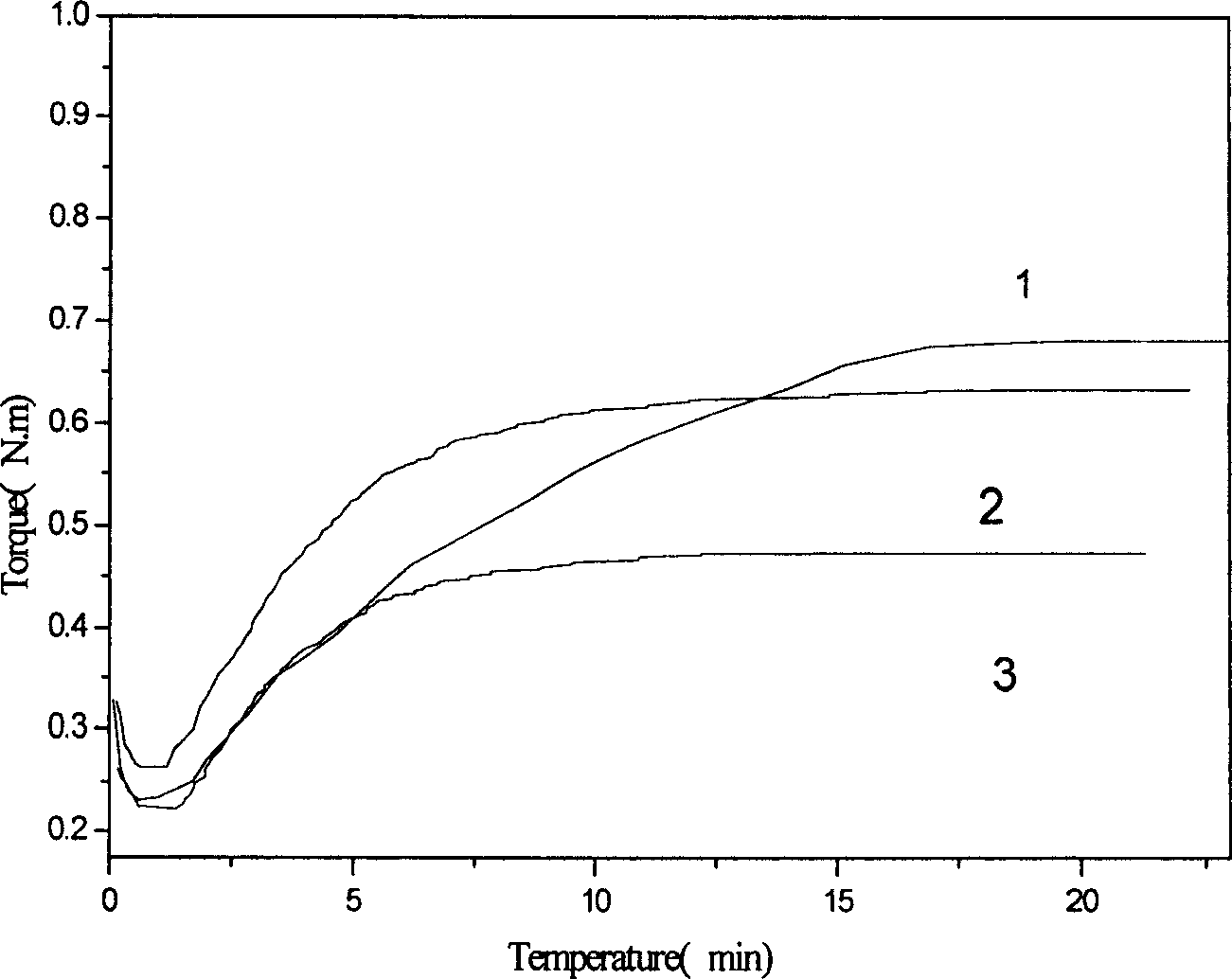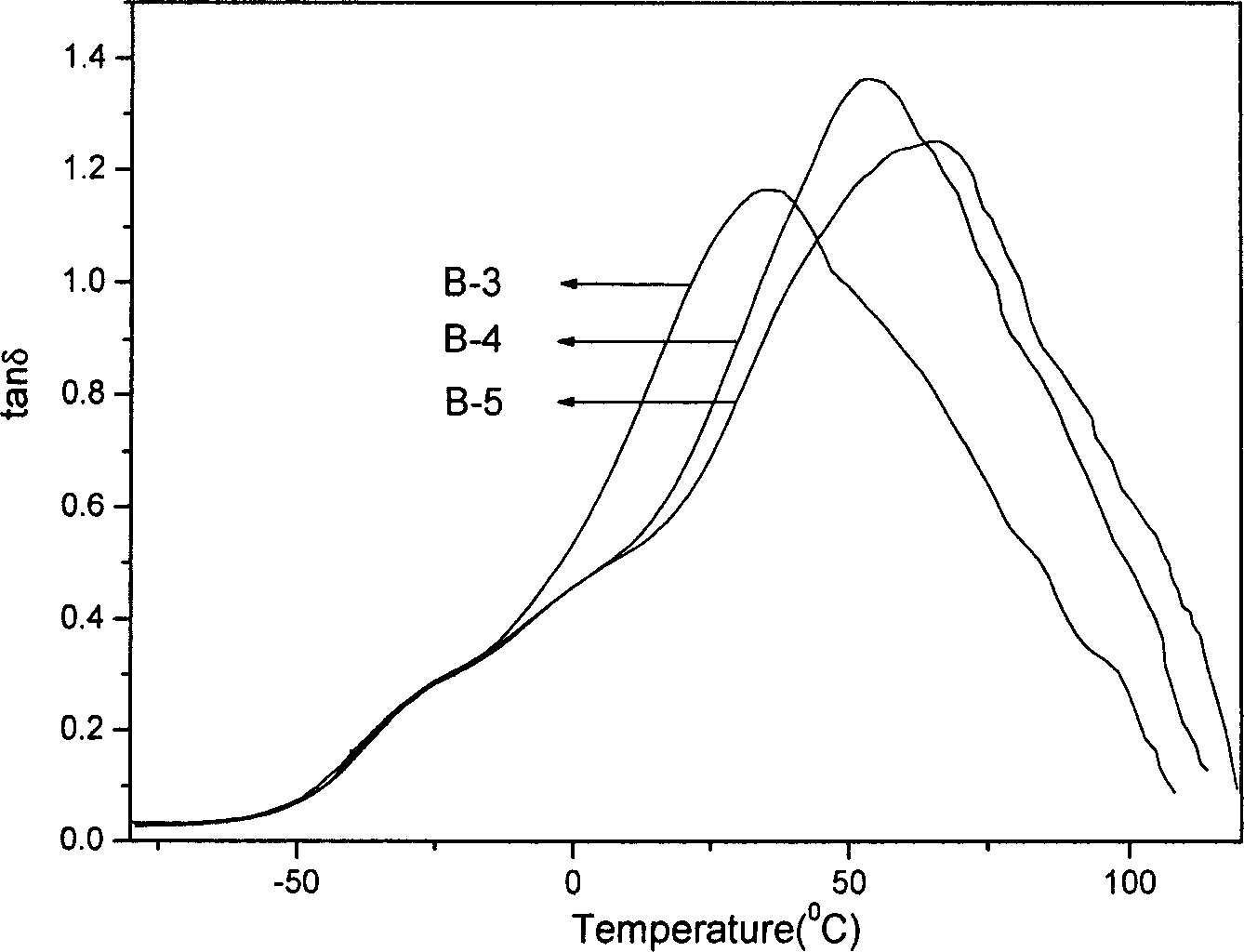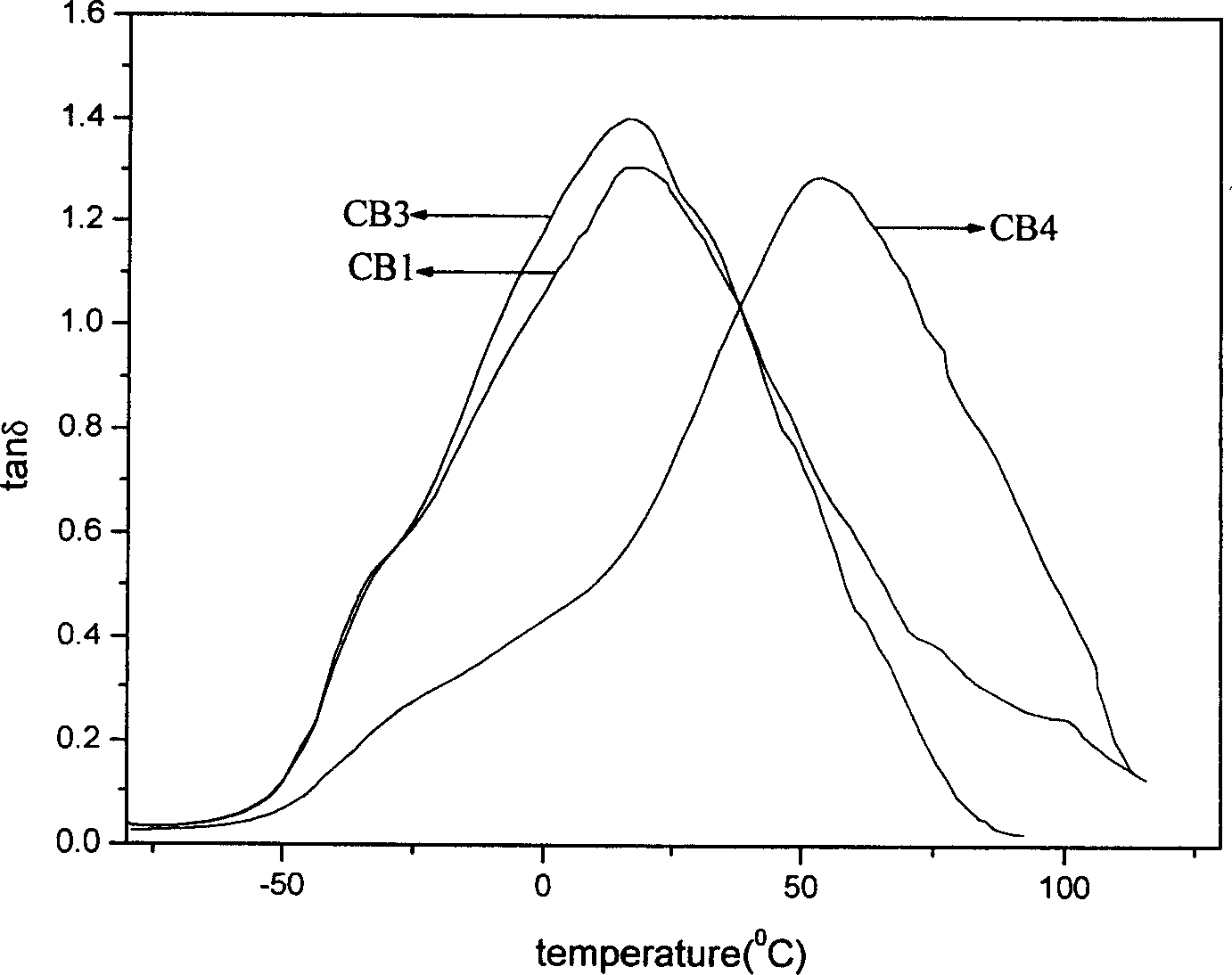Butyl rubber/poly(meth)acrylate blend composite damping material and process for preparing same
A technology of compound damping material and butyl rubber, which is applied in the fields of polymer synthesis and molding processing, can solve the problems of difficulty in meeting the application requirements of shock absorption and noise reduction, and achieves easy compounding with metal, improving bonding ability, and improving compatibility. Effect
- Summary
- Abstract
- Description
- Claims
- Application Information
AI Technical Summary
Problems solved by technology
Method used
Image
Examples
Embodiment 1
[0033]Ethyl acrylate and butyl (meth)acrylate were polymerized according to the ratios in Table 1 at 25±2° C. according to conventional emulsion polymerization methods. After the reaction, four kinds of poly(ethyl acrylate-butyl methacrylate) copolymers were prepared respectively through washing, demulsification and drying. For the preparation of the poly(ethyl acrylate-butyl methacrylate) copolymer of B-3, its ethyl acrylate: butyl methacrylate=100:0; For the preparation of the poly(ethyl acrylate-butyl methacrylate) of B-1 and B-5 Ethyl acrylate-butyl methacrylate) copolymer, its ethyl acrylate: butyl methacrylate=60: 40, is used to prepare the poly(ethyl acrylate-butyl methacrylate) copolymer of B-2, Its ethyl acrylate: butyl methacrylate=40: 60, is used to prepare the poly(ethyl acrylate-butyl methacrylate) copolymer of B-4, its ethyl acrylate: butyl methacrylate=70: 30. According to the proportions of various poly(meth)acrylates and chlorobutyl rubber in B-1 to B-5 in t...
Embodiment 2
[0035] Ethyl acrylate, butyl methacrylate and glycidyl methacrylate were polymerized according to the ratios in Table 3 at a temperature of 25±2°C by conventional low-temperature emulsion polymerization. After the reaction finished, poly(ethyl acrylate-butyl methacrylate-glyceryl methacrylate) with active vulcanization point was obtained through washing, demulsification and drying according to the CB-1~CB-5 in Table 3 respectively. Formula, blend with chlorobutyl rubber on a double-roller mixer at a temperature of 170-180°C, and then add 201 phenolic resin vulcanizing agent, filler and other vulcanization aids at 60°C. The blend was molded on a press at a temperature of 140-170°C and a pressure of 5-10 MPa for 10-20 minutes to obtain a sample of a co-vulcanized blended chlorinated butyl rubber / polymethacrylate composite damping material. Performance details are shown in Table 4.
[0036] Numbering
[0037] Numbering
[0038] Numbering
[0039]...
PUM
 Login to View More
Login to View More Abstract
Description
Claims
Application Information
 Login to View More
Login to View More - R&D
- Intellectual Property
- Life Sciences
- Materials
- Tech Scout
- Unparalleled Data Quality
- Higher Quality Content
- 60% Fewer Hallucinations
Browse by: Latest US Patents, China's latest patents, Technical Efficacy Thesaurus, Application Domain, Technology Topic, Popular Technical Reports.
© 2025 PatSnap. All rights reserved.Legal|Privacy policy|Modern Slavery Act Transparency Statement|Sitemap|About US| Contact US: help@patsnap.com



